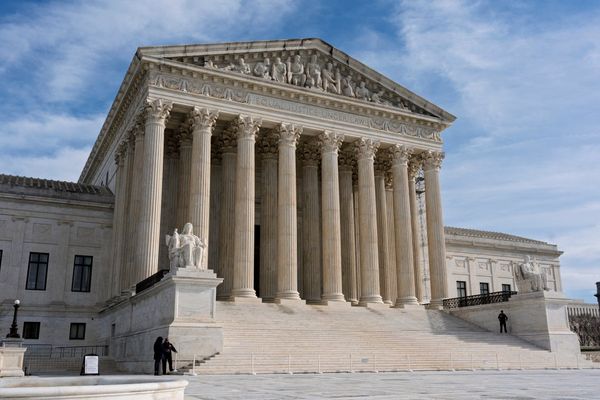ORLANDO, Fla. — JetBlue Airways Corp. has been improperly avoiding as much as $800,000 a year in property taxes, according to new Orange County Property Appraiser Amy Mercado.
That’s enough money to pay the salaries of 11 public-school teachers.
At issue are three properties JetBlue leases at Orlando International Airport: an employee training center, a hotel and a maintenance hangar. JetBlue’s properties, Mercado said, appear to have been “inadvertently” left off of Orange County’s property tax rolls for years — and therefore exempt from paying the tax that funds everything from garbage collection to parks to police.
Mercado, who examined JetBlue’s properties after the Orlando Sentinel asked why the company wasn’t paying taxes on them, said she will add the properties to the tax rolls this year.
She also said her office may attempt to collect back taxes from New York-based JetBlue, which lost nearly $1.4 billion last year amid the COVID-19 pandemic but earned more than $2.6 billion in profits over the four years before that.
“We’re still exploring all our options right now,” said Mercado, who defeated previous Orange County Property Appraiser Rick Singh during last fall’s elections.
A spokesman for JetBlue said the company has not been contacted by Mercado’s office and declined to answer specific questions. But he said generally, “JetBlue takes its tax obligations in the state of Florida seriously.”
JetBlue is one of the biggest commercial tenants at Orlando International Airport, where its holdings include a 107,000-square-foot employee-training center known as “JetBlue University” that opened in 2005 and a $37 million, 196-room employee hotel known as “The Lodge” that opened in 2015.
The training center and the hotel were built on 20 acres that JetBlue leases from the Greater Orlando Aviation Authority, the government agency that runs OIA. JetBlue also leases a maintenance hangar from the agency.
Governments are almost always exempt from paying property taxes themselves. But that changes when they lease their property out to private companies.
When that happens, the company leasing the property is generally supposed to pay taxes on it unless the property is being used for a “governmental” purpose. The Florida Legislature — which doesn’t depend as much on property taxes as cities and counties do — has tried to define “governmental” very broadly. But courts have defined it more narrowly.
As a result, the line is blurry. But it’s unlikely that all of JetBlue’s facilities at OIA — particularly the training center and hotel — would qualify for a tax exemption.
In fact, records show that JetBlue applied for a tax exemption in 2016, shortly after opening the hotel, and the Orange County Property Appraiser’s Office denied it. But JetBlue’s hotel was never added to the tax rolls after that.
Instead, JetBlue’s property remained essentially hidden from taxes as part of a much larger parcel of tax-exempt properties held in the airport authority’s name. JetBlue’s training facility and maintenance hangar are also tucked inside that larger airport authority parcel.
Altogether, the three JetBlue facilities have an estimated taxable value of around $43.4 million. So keeping those properties off the tax rolls saved JetBlue more than $800,000 last year alone.
Mercado, who took over as property appraiser in January, said she’s been unable to find any documentation of why JetBlue’s properties weren’t removed from the broader airport authority account. “They were sent a denial but then nothing happened,” Mercado said. “I’m going to call it inadvertent.”
In a written statement, representatives for Greater Orlando Aviation Authority, which runs OIA and leased the properties to JetBlue, said the agency bore no responsibility for the apparent lapse.
The aviation authority — which is run by appointees of Florida Gov. Ron DeSantis plus Orlando Mayor Buddy Dyer and Orange County Mayor Jerry Demings — said that it’s up to the property appraiser to verify tax exemptions and JetBlue to pay any property taxes that are owed.
“Generally, our agreements with tenants specify that they are required to pay any ad valorem [property] taxes assessed on their leaseholds, thus making it the responsibility of the tenant to address matters of ad valorem taxation,” the airport said in its statement.
Mercado said JetBlue’s facilities will be added to Orange County’s tax rolls this year. Once that happens, JetBlue could attempt to apply for a new exemption.
Mercado also said her office will review all tax-exempt properties across Orange County — including any others that, like JetBlue, may be tucked inside the airport authority’s larger tax-exempt parcel.
The moves could thrust Orange County into what is a growing statewide battle.
Across Florida, some cities, airports and other agencies — such as Space Florida — have in recent years more aggressively tried to help private companies qualify for property tax exemptions in the name of “economic development.” But some property appraisers have pushed back.
The city of Lakeland, for instance, initially told Amazon.com Inc. that it wouldn’t have to pay property taxes on a new air-freight hub that the giant retailer built at Lakeland Linder International Airport. But then the property appraiser in Polk County obtained a legal opinion that said Amazon would owe taxes on the land. Amazon opened its Lakeland air hub in 2020, and it won’t be clear until later this year whether it will end up paying property taxes.
In Tampa, the property appraiser in Hillsborough County won a pair of court decisions last fall after denying exemptions to a number of private companies leasing property at Tampa International Airport and Port Tampa Bay. Some of those companies, and the local airport and port authorities, have appealed the decision.
In response, a group called the Florida Airports Council — whose members include both public airports and private companies — is lobbying state lawmakers in Tallahassee for a bill that boosters hope would undercut those Tampa court cases.
The legislation (HB 1555 and SB 1702) hasn’t been heard yet, though it could surface later in the session as part of a bigger package of tax breaks. The two-month session ends in early May.
Lisa Waters, the president and CEO of the airports council, declined to comment on the lawsuits but said that the legislation is meant to “further clarify” which private companies are entitled to government tax exemptions.
———







